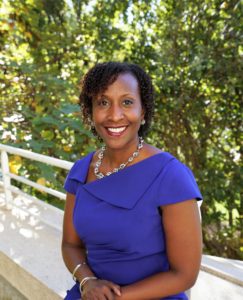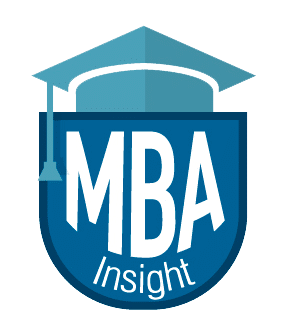The Fuqua School of Business- Duke University

Shari Hubert, Associate Dean of Admissions at Duke University – The Fuqua School of Business
1) What’s the single most exciting development, change, or event happening at your MBA program this coming year?
- Some of the trends we see are a focus around AI, data analytics, more flexibility in business education options (Executive, One Year, Online). Much more interest in the ROI of investing in a business degree. At Fuqua, we are extremely focused on making sure business education remains relevant. We will continue to listen to industry about the skills they need and adapt accordingly– such as in data analytics. Our programs in big data focus on not just finding key insights, but also applying them in a particular business and communicating their value.
- We will also continue to adapt curriculum to focus on the current challenges facing our students as future business leaders– We have a very popular professor, Aaron Chatterji, who teaches a cool course called “CEO Activism.” He’s one of the few academics who has studied the effect on a company when a CEO speaks out and if CEOs actually have any influence on public opinion about issues. The role of business leadership has been shifting and these issues are top of mind for many leaders these days. Our Dean, Bill Boulding, speaks about a new kind of leader with triple threat capabilities – IQ, EQ and DQ (decency quotient).
- We have just announced a new certificate in data analytics in our Daytime MBA program, called Management Science and Technology Management (MSTeM). This certificate will require the completion of eight electives. It will be the third certificate we offer to our Daytime MBA students – along with Health Sector Management and Financial Excellence. (We also offer 11 different concentrations to allow our students to deepen their knowledge or skills in a particular area during their MBA program, should they wish.) Obviously, data analytics is shaping all areas of business and we have deep expertise in the area through our one-year Master in Quantitative Management: Business Analytics program, that we wanted our MBA students to be able to take advantage as well. In addition to the great analytic skills our students will gain by pursuing this certificate, because of the STEM designation, there are also some additional career benefits.
- Also related to data analytics, we announced our first purely online program: Master of Quantitative Management: Health Analytics. The first class started this past Fall with a very diverse cohort. We are being very intentional about making sure that online delivery will still produce the same great collaborative leaders as our face-to-face programs. Thus, our faculty have taken great care to design a program with a small cohort of about 40, with students assigned to teams of five or so within the cohort. The program has a hybrid format with part of the program completed in real-time with the class and faculty (Synchronous), and with the learning team. Other portions of the program can be completed independently by the student (Asynchronous), so that there is flexibility. The program will have an in-person orientation, which we believe is key to establishing relationships before students move into our online experience.
- Finally, we announced some changes in our executive MBA programs aimed at accessibility and increasing diversity. Long story short – last year, we merged our two executive MBA programs with a global focus into a single Global Executive MBA program – so that our cohorts will be even more diverse in their ages and job stages. Previously, we had one program aimed at more senior executives and one for students who were earlier in their careers. What we found through experimentation is that there were great benefits in mentoring and reverse mentoring when we merged those two groups, into more intergenerational cohorts. We also made changes to our Weekend Executive MBA program, relaxing the amount of time required to be physically in Durham to once a month, and giving students the option to join other classes virtually instead. We have seen a benefit in that it encourages working parents to pursue the program, as well as increases geographic diversity for people who aren’t able to travel twice a month to Durham.
2) What 2-3 qualities, skill sets, experiences does your program value most in applicants?
- All of our programs at Fuqua excel at creating a certain type of leader who works exceptionally well collaboratively. We call it Team Fuqua – which we define as a special way of working that pulls out the strengths in others to work toward a common goal. Every aspect of our curriculum and program is tailored with that in goal in mind. For example, you are required to work in teams for much of the program. Those teams are intentionally diverse. And we aren’t just talking about geographical or gender diversity – but also varying industries and backgrounds. We believe learning how to harness the power that lies in differing perspectives is key to leadership.
- With that recognition, we intentionally seek to bring in a diverse student population – truly representative across experiences, backgrounds, cultures, beliefs, nationalities and various demographics – with the intention of broadening our collective perspective and facilitating more innovative thought and discussion. We look for what students have contributed and will contribute to those they interact with or impact in some way.
- Our students very much contribute and are accountable for their respective transformations from day 1, and create a culture that we’ve been told can be defined as –Energizing, Grit, Humble and Happy
- I would also say that we look for applicants who really understand our culture, can see themselves thriving here and demonstrate that they have taken the genuine time to get to know us throughout the application process, and therefore really want to be part of our unique community.
3) How does your team approach the essay portion of the application specifically? What are you looking for as you read the essays? Are there common mistakes that applicants should try to avoid? One key thing they should keep in mind as they sit down to write them?
Our essay questions are designed to really get to know you, particularly our 25 random things. Try to avoid the trite and superficial, and I would also focus less on your professional accomplishments as we can read those through your resume or another part of the application form. Some people have a difficult time getting to 25 we know, but we recommend including context around how does that fact drive your ability to be a better, different, or a more unique Fuqua MBA. We want the insights behind the random facts, but also how they shape who you are today. I encourage applicants to talk to their friends and family to get ideas of what might be appropriate or interesting to share, as these individuals tend to really know you – the good, bad and ugly. We are genuinely interested in going beyond just test scores or any single data point – and as such we take our essays and the interviews very seriously. We are looking for people who share our belief that business can change the world for the better and possess the humility and leadership skills to bring out the best in others. That match all starts with sincerity and authenticity. After that, my advice would be pretty general – show you’ve done research, make sure someone else reviews to make sure you’re answering the question. Don’t be afraid to be somewhat vulnerable in your essays as those are always most interesting.
4) Do you have any application tips (for essays & recommendations) for MBA applicants?
- Give yourself plenty of time. There is often a lot of soul searching that can happen in the application process and you don’t want to feel rushed with your essays. You want to give yourself time to process and think through the best representation of who you are and why an MBA will help you accomplish your goals. Part of the key to a successful application is your ability to articulate what you want to have come across to the admissions committee, just as much as the substance of what you share.
- I’d also advise making sure you build in time to visit the schools on your shortlist, if you have the time and finances to do so. This is especially important at Fuqua, if you can swing it. You learn so much from being on campus and interacting with students and staff. Often what you learn during these visits helps you to be able to bring to life what you then put on paper in your application because your experience is a bit more real and personal.
- As for recommendations, I would encourage you to set up time early 3-4 months in advance of when they are due to discuss your goals and objectives for an MBA, remind him or her of your accomplishments and confirm they are willing to WRITE it for you and that they feel comfortable providing you with a positive recommendation. I would also give them an early deadline to have it submitted, in case you find that they are needing more time and are behind in getting it completed.
- I would leverage the optional essay to explain any anomalies in your recommender of choice that you feel the admissions committee might have questions about, so the Admission committee is not left guessing at why you decided to submit a recommender outside of the parameters of their suggestions (if that is indeed the case).
5) Are you putting additional emphasis on the GMAT versus in past years? Thoughts on GMAT vs. GRE?
No, we are not putting any additional emphasis on the GMAT or GRE than we have in the past. Our GMAT middle 80% range is 650-750 (we do not publish a GRE range), and we are truly agnostic when it comes to your taking the GMAT or the GRE (about 14% of last year’s incoming class submitted GRE scores). Take whichever test you will perform best. Feel free to take the test more than once as well; but after 3 or more times, I would move on to focus on other areas and ways you can demonstrate quantitative or verbal aptitude. It is certainly a meaningful data point that we take into consideration, but we do not feel it is the only nor the most important factor to your overall success in an MBA program or career. Therefore, we look at every aspect of the application to gain the best picture of someone’s abilities, the value they would gain from the degree and their potential contributions to our community.
6) What resources are available at your MBA program to assist with internship and full-time job opportunities (or to advance their Career Path)?
- Our Career Management Center is a team of 30 professionals with industry and functional expertise who collaborate with students as well as potential employers. The CMC works with you to oversee all aspects of your job search. Your career management team includes:
- Career coaches with industry specialties, a programming team that helps you master complex career search techniques, and other specialists who work across department lines—helping you identify synergies and career options you never considered.
- There are 7 Sector Directors who cover every industry our students are interested in going into. They work with students (for internships and full-time opportunities) and employers and make connections that increase our students ability to access great job opportunities.
- There are 70+ Career Fellows, who are 2nd year students who mentor and coach 1st years to support them through their career journey as well.
- We also have a student and alumni services team that provides individual coaching, workshops and other programming for both students and alumni (you get lifelong career resources and support as an alum of Fuqua, by the way). In our career curriculum, we train students to pursue career opportunities both on campus and through their custom search so students’ diverse interests can be pursued, and so that they have the tools and skills to be successful in the job search process throughout the longevity of their career.
- Finally, there’s recruiting and operations support services to assist with the on-campus recruiting activities and interviews. We have over 200 companies who come to campus to recruit our students.
- Our student clubs partner with our Career Management Center to host “Week-in-City” treks across the country and even the globe, to visit with employers and learn directly about their culture, opportunities and what they seek in Fuqua students. These student-led treks are very popular.
- The combination of a general management curriculum plus the flexibility to customize with a variety of concentrations provides students both breadth and depth from an academic preparation perspective and that serves as a springboard for many different types of post-MBA careers.
- Consulting and healthcare (together) has typically comprised about 40 – 45% of a graduating class, so students are going into diverse industries and functions. Finance, general management, and consumer products have also been historically strong, and tech has emerged as now the second largest sector (consulting is #1). Consulting remained the most popular industry in the 2018 graduating class, and out of those who pursued a search in consulting, 56% are at McKinsey, Bain, BCG or Deloitte. So our students are highly sought after by the best consulting firms both in the US and abroad.
- 28% of our students went into the Tech Sector with Amazon, Google, Microsoft among the top employers, also 30% of our students end up out on the West Coast and another 30% or so end up in the combined Mid-Atlantic/Northeast corridor. There were about 10% of the class that landed international jobs, so it demonstrates our national and even international reach in terms of employer relationships. But, I think it also demonstrates that for any of our international students who may need work authorization, that the majority of them are successful in finding great jobs here in the US, should they wish to stay after graduation. Bottom line: our Durham location provides you with access to great and broad-reaching careers and geographies post- graduation.
- Our students continue to do very well in the job market with 94% having accepted offers 3 months out, Median salary $125,000, median bonus $30,000 for a total compensation of $155,000.


